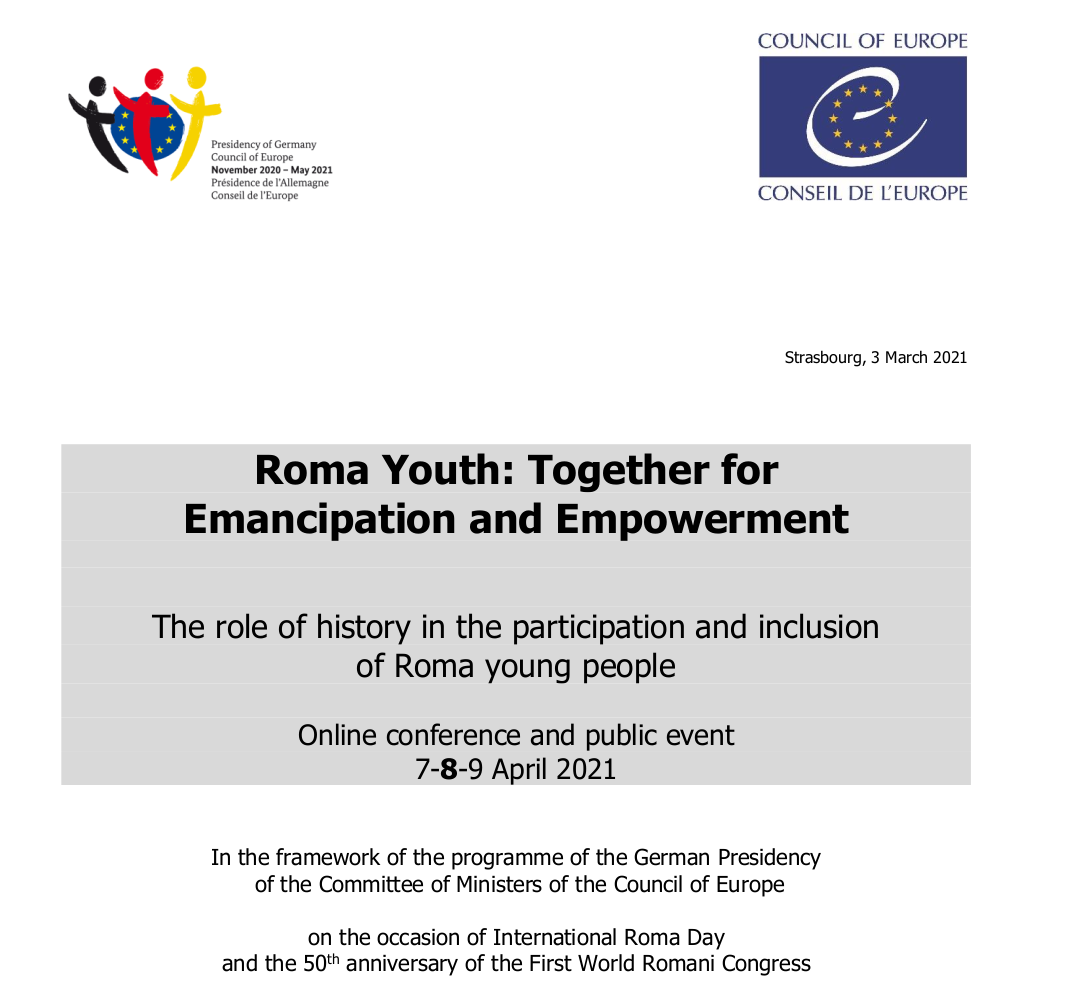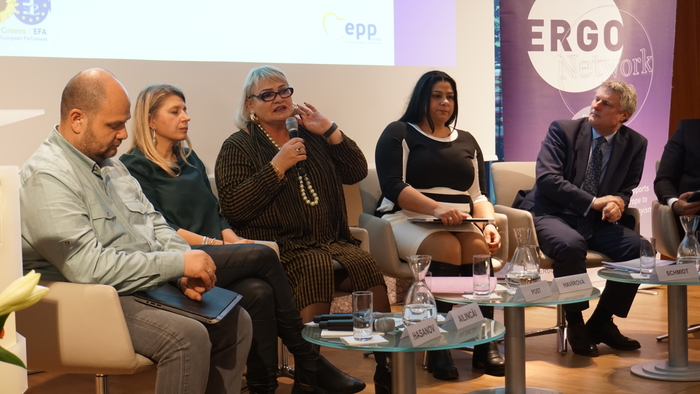ERGO Network reacts to the Council Recommendations on digital skills and digital education and training:
What’s in them for Europe’s Roma[1]?
On 18 April 2023, the European Union put forward two Council Recommendations, one on improving the provision of digital skills in education and training, and one on key enabling factors for successful digital education and training. Both Recommendations are part of the European Year of Skills and the ambitious Digital Education Action Plan, articulating a vision of high-quality, inclusive and accessible digital education in Europe and aiming to support the adaptation of the education and training systems of Member States to the digital age.
ERGO Network has consistently advocated for more and better digital inclusion for Europe’s Roma, so that they don’t end up being the losers of the digital transition. As such we were delighted to see that the Roma are mentioned in both Council Recommendations. Roma children and learners are not provided, from a very early age, with the same learning opportunities as their majority peers, as the vicious circles of poverty and antigypsyism act as powerful barriers in accessing both digital skills, as well as education and training through digital means. Subsequently, they have lower attendance and completion rates, which in turn lead to higher poverty rates and poor labour market integration and social participation.
In the Council Recommendation on improving the provision of digital skills in education and training, the Roma are explicitly referenced in the Explanatory Memorandum, which highlights that having a Roma background (alongside gender, socio-economic and migrant background) strongly correlates with poorer digital skills outcomes. While this is a welcome mention, it is a pity that the document stops short of pointing out why that correlation exists and tackling intersectional discrimination. In fact, there is only one reference to discrimination in the whole document, still in the Explanatory Memorandum, and it is only a brief reference to the right to non-discrimination in Article 21 of the Charter of Fundamental Rights of the European Union, which this Council Recommendation is in line with.
We are further pleased to notice several references to racial or ethnic origin and minority background in the document. The Union of Equality and its role in supporting the most marginalised communities is highlighted, including – in a footnote – its 5 key initiatives adopted thus far, including the EU Roma Strategic Framework for Equality, Inclusion and Participation, and the EU Anti-Racism Action Plan. Additionally, the Recommendation supports a gender equality approach, inclusive supporting girls with a minority racial or ethnic background.
The Council Recommendation on the key enabling factors for successful digital education and training also contains one reference to Europe’s Roma, who are named among other disadvantaged learners (such as those with low skills, experiencing poverty, or of migrant background) who have less access to computers at home and start using digital devices later in life. Aside this reference, the document – similarly to the other Council Recommendation – includes the same pro-forma references to the Union of Equality and its composing initiatives (including the EU Roma Framework and the Anti-Racism Action Plan) and to Article 21 on anti-discrimination of the Charter of Fundamental Rights. A clear commitment to tackling discrimination and racism, and in particular antigypsyism in order to curb the digital divide and guarantee equal and inclusive access, is missing from both texts.
ERGO Network warmly welcomes these references, because experience has shown time and time again that the Roma and other racialised communities must be explicitly included in mainstream policy documents and objectives, or generalised approaches will see them left behind. Dealing with Roma access to education exclusively under the EU Roma Strategic Framework leads to siloing of issues, rather than comprehensive solutions that tackle challenges (and their roots!), focusing on both prevention and resolution.
To ensure that every Roma child gets a good start in life, we must guarantee equal access to quality and inclusive digital education and training, including digital skills. We hope that European Commission efforts to curb the digital divide and to ensure access to quality and inclusive education, including digital education, for all will explicitly include a focus on Roma learners, as some of the most disadvantaged learners in Europe.
For more information about our work on Roma digital inclusion, please contact Amana Ferro (a.ferro@ergonetwork.org), Senior Policy Adviser with the ERGO Network staff team.
[1] The umbrella term “Roma” encompasses diverse groups, including Roma, Sinti, Kale, Romanichels, Boyash/Rudari, Ashkali, Egyptians, Yenish, Dom, Lom, Rom and Abdal, as well as Traveller populations (gens du voyage, Gypsies, Camminanti, etc.), in accordance with terminology used by the European Commission.





 This conference was kindly supported by a grant from the Foreign Office of the Federal Republic of Germany.
This conference was kindly supported by a grant from the Foreign Office of the Federal Republic of Germany. ERGO Network receives financial support from the European Union Programme for Employment and Social Innovation EaSI (2014-2020). For further information please consult: http://ec.europa.eu/social/easi
ERGO Network receives financial support from the European Union Programme for Employment and Social Innovation EaSI (2014-2020). For further information please consult: http://ec.europa.eu/social/easi